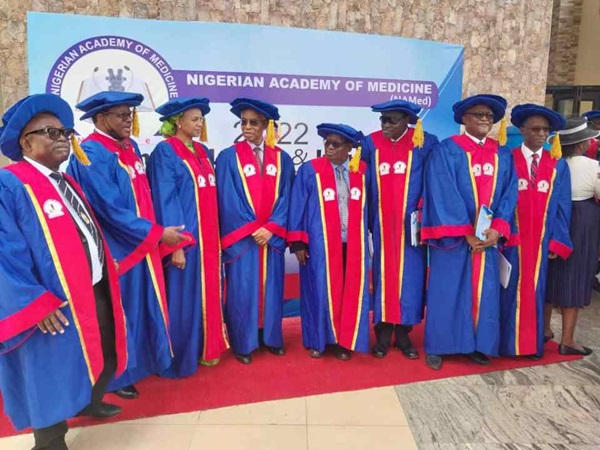
The Nigerian Academy of Medicine (NAMed) has called upon a wide array of stakeholders, spanning government agencies, policymakers, educators, healthcare professionals, organisations, academic institutions, NGOs and communities to fortify interprofessional relationships and allocate more substantial funding to the healthcare sector.
This rallying cry resonated during the 2023 annual lecture and induction ceremony held in Abuja.
The theme of the event revolved around “Interprofessional Relationships in the Health Sector: Enhancing the Healthcare Workforce in Nigeria in the Presence of Challenging Demographics”.
Former Minister of Health and a foundation fellow of NAMed, Prof. Isaac Adewole, who delivered the lecture, underlined the paramount importance of interprofessional relationships within the healthcare sector.
Prof. Adewole shed light on the demographic challenges confronting Nigeria’s healthcare sector, encompassing rapid urbanisation, an aging population and an escalating prevalence of non-communicable diseases.
He underscored the necessity of unifying various healthcare professionals, including doctors, dentists, nurses, pharmacists and other allied healthcare professionals, to establish an efficient and comprehensive care system for all Nigerians.
Adewole illuminated the numerous benefits of robust interprofessional relationships, including improved health outcomes, enhanced communication, reduced conflict, heightened confidence and an environment conducive to innovation among healthcare workers.
Nonetheless, he also identified multiple challenges impeding interprofessional relationships, such as a lack of mutual understanding and respect, hierarchical structures, inadequate communication, limited interprofessional education and insufficient funding.
The lecture didn’t shy away from addressing the issue of strikes in the Nigerian healthcare system, driven by factors such as professional rivalry, poor funding, inadequate facilities, unsatisfactory working conditions, management conflicts, corruption and general insecurity.
A particularly pressing concern highlighted was the phenomenon of medical tourism and overseas treatment. “Nigeria loses an estimated USD 1 billion annually due to the preference for seeking medical treatment abroad,” Adewole stated.
In response to these challenges, he advocated for the promotion of mutual respect and understanding among healthcare professionals, the dismantling of hierarchical structures, the improvement of communication, the enhancement of interprofessional education and the resolution of legal and regulatory barriers.
In addition, he called for the exploration of innovative financing mechanisms to attract private sector investment in healthcare.
Adewole also stressed the paramount importance of primary healthcare and the urgency of achieving the targeted score of 90 per cent in the Primary Health Care Under One Roof (PHCUOR) policy assessment.
The inaugural president of NAMed, Prof. Samuel Ohaegbulam reiterated the significance of strengthening the healthcare workforce in the face of challenging demographics.
Ohaegbulam emphasised the need to bolster political will and mobilise resources to reinforce and adequately finance the Nigerian health system.

